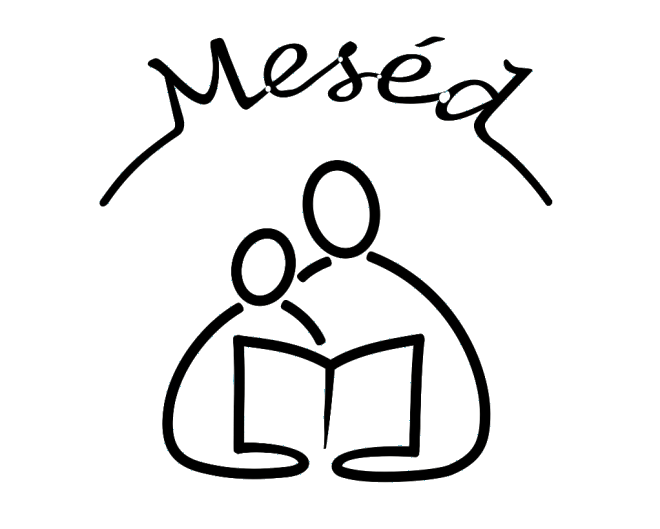The Idea Behind Meséd
by Furugh Switzer
Meséd is based on the well-established fact that parental engagement is essential for successful pre-primary education and that the academic performance of children is correlated to the attitudes and literacy skills of their parents. In order to improve the participation of Roma and other disadvantaged people in the edcational system at all levels – and thereby increase outcomes of equity – we need to provide support and training for the parents and, in particular, the mothers who, in most cases, stay at home with the children and have the most influence on them. Research has shown that if children are read to in their early years, they gain the required capacity to integrate into the life of the school system and therefore, perform better and remain in the system longer. The Meséd program attempts to reach the mothers of young children and to inculcate in them a friendly attitude towards books and reading which would be naturally and immediately transfered to their children. With reading story books to children under the age of six and beyond, the concentration and imagination capacities of young children are reinforced.
most influence on them. Research has shown that if children are read to in their early years, they gain the required capacity to integrate into the life of the school system and therefore, perform better and remain in the system longer. The Meséd program attempts to reach the mothers of young children and to inculcate in them a friendly attitude towards books and reading which would be naturally and immediately transfered to their children. With reading story books to children under the age of six and beyond, the concentration and imagination capacities of young children are reinforced.
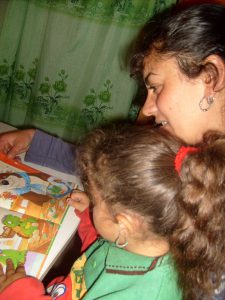
At the same time, the vocabulary and language structures needed for school learning is developed. All this is achieved through the psychological impact of closeness and attachment to mothers and the safety and warmth that the child will come to associate with learning and reading. Research has shown that improvements in the literacy level of children is best achieved when the parents themselves are literate and are involved in their children’s educational life.
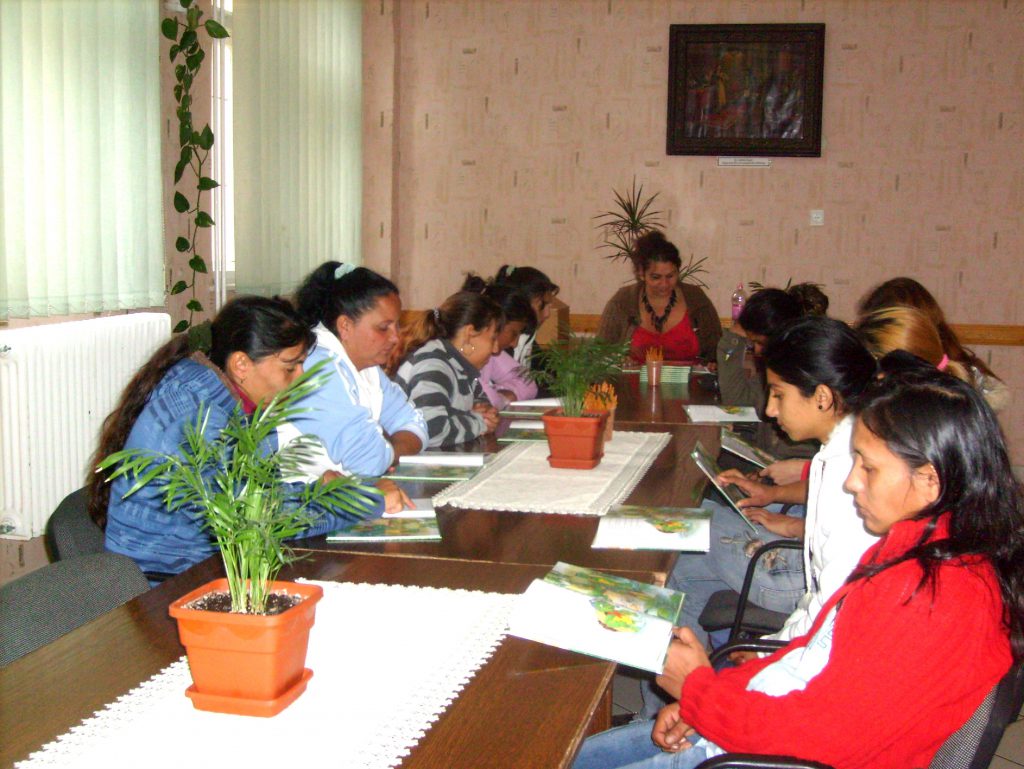
How Meséd Works
Based on the above mentioned facts and hypothesis, the Meséd project uses a non-formal adult education methodology, aiming to reach mothers who, in most cases, had dropped out of school at an early age. 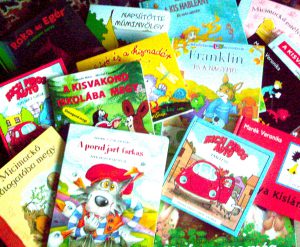 The few years of schooling that these mothers had, mostly accompanied with feelings of failure and lack of competency, have in most cases left them with an avoiding posture towards reading and books. This negative association with book learning, when left unchecked, is passed onto their children and the pattern of educational failure continues.
The few years of schooling that these mothers had, mostly accompanied with feelings of failure and lack of competency, have in most cases left them with an avoiding posture towards reading and books. This negative association with book learning, when left unchecked, is passed onto their children and the pattern of educational failure continues.
Through use of attractive children story books, Meséd attempts to affect a change in this cycle by creating a positive experience in relation to books and reading which can immediately be put into practice with their children. Through weekly sessions, and with the help of trained faciltators, mothers are introduced to simple children story books. They regain and improve their skills of reading and are 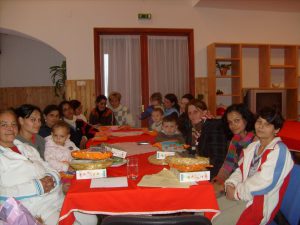 encouraged to discuss and use the stories in a meaningful manner. In an atmosphere of support and acceptance, mothers begin to enjoy reading and talking about the stories. This also leads to sharing of real life stories and talking about issues that concern them. The group members, in many cases from a mixed ethnic background, start to develop a family-like closeness, learning more about each other and from each others’ experiences. In a short span of time, consciousness, a sense of community, and purpose is developed which is conducive to learning and growth. Meaningful and observable progress is made as the mothers learn to accept, honor and encourage each other and remain positive and expressive about the issues that challenge their everyday life.
encouraged to discuss and use the stories in a meaningful manner. In an atmosphere of support and acceptance, mothers begin to enjoy reading and talking about the stories. This also leads to sharing of real life stories and talking about issues that concern them. The group members, in many cases from a mixed ethnic background, start to develop a family-like closeness, learning more about each other and from each others’ experiences. In a short span of time, consciousness, a sense of community, and purpose is developed which is conducive to learning and growth. Meaningful and observable progress is made as the mothers learn to accept, honor and encourage each other and remain positive and expressive about the issues that challenge their everyday life.
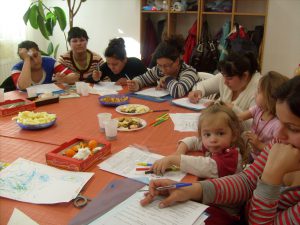 Every week the mothers, after discussing and practising to read a new book in a systematic method, are given the book as a gift of the project. Their task begins at home by reading the story to their children every night and using the skills they have learned in discussing the stories with their children. Thus, children become the other immediate and natural beneficieries of the project.
Every week the mothers, after discussing and practising to read a new book in a systematic method, are given the book as a gift of the project. Their task begins at home by reading the story to their children every night and using the skills they have learned in discussing the stories with their children. Thus, children become the other immediate and natural beneficieries of the project.
Children are universally the most enthusiastic recepients of these books which, as a bonus, bring them into a closer relationship to their mother as well. In many cases, small children, too young to read, memorize these stories and are able to „read” by merely looking at the pictures. The children often feel proud of their new possession and take the books to the kindergarten to show their teachers and the other children.
Different phases of the project
The project includes three phases. The first phase concentrates on developing reading skills. In the second phase the element of writing is added and the use of arts including drawing and painting is encouraged. With greater proficency in reading and writing mothers engage in writing stories of their own. In the third phase through the use of drama pedagogy the participants develop life skills in handling the challenging situations facing them in their daily life such as relating to the kindergarten teachers, doctors, employers, etc.
In this part of the project mothers also take on service projects to help with the development of community and society around them. One of the goals of Meséd is to eventually motivate and equip mothers to further their own further education.
